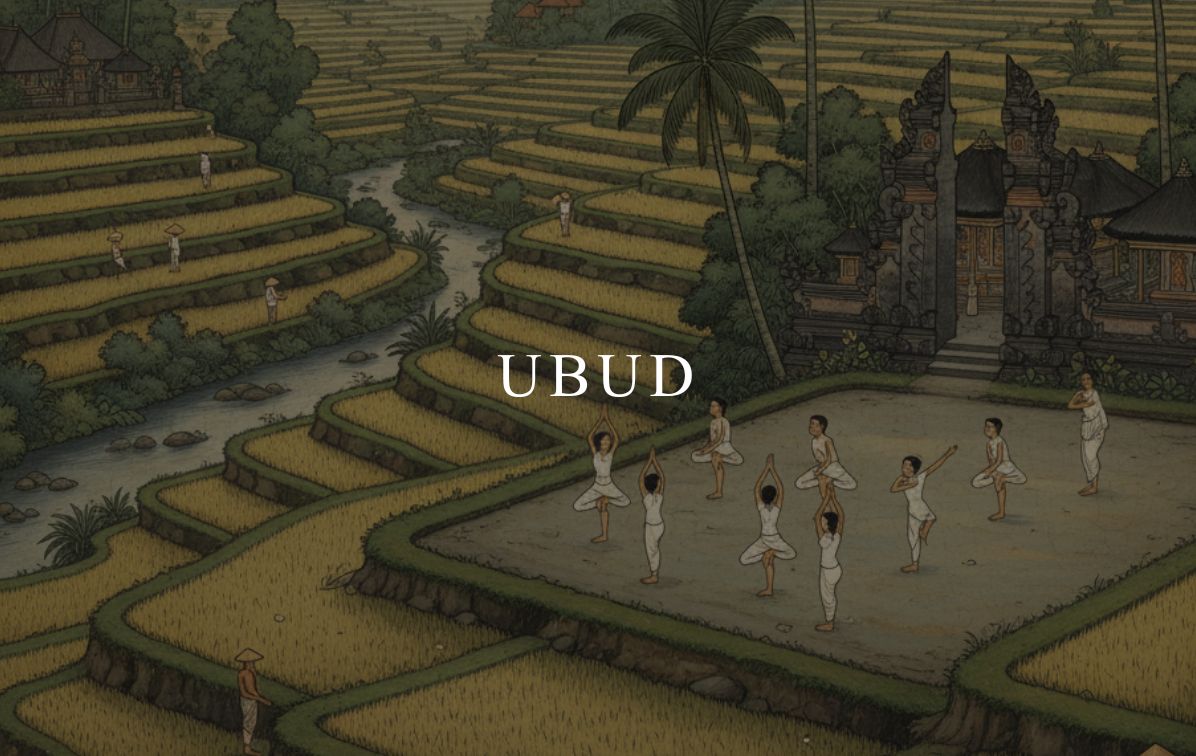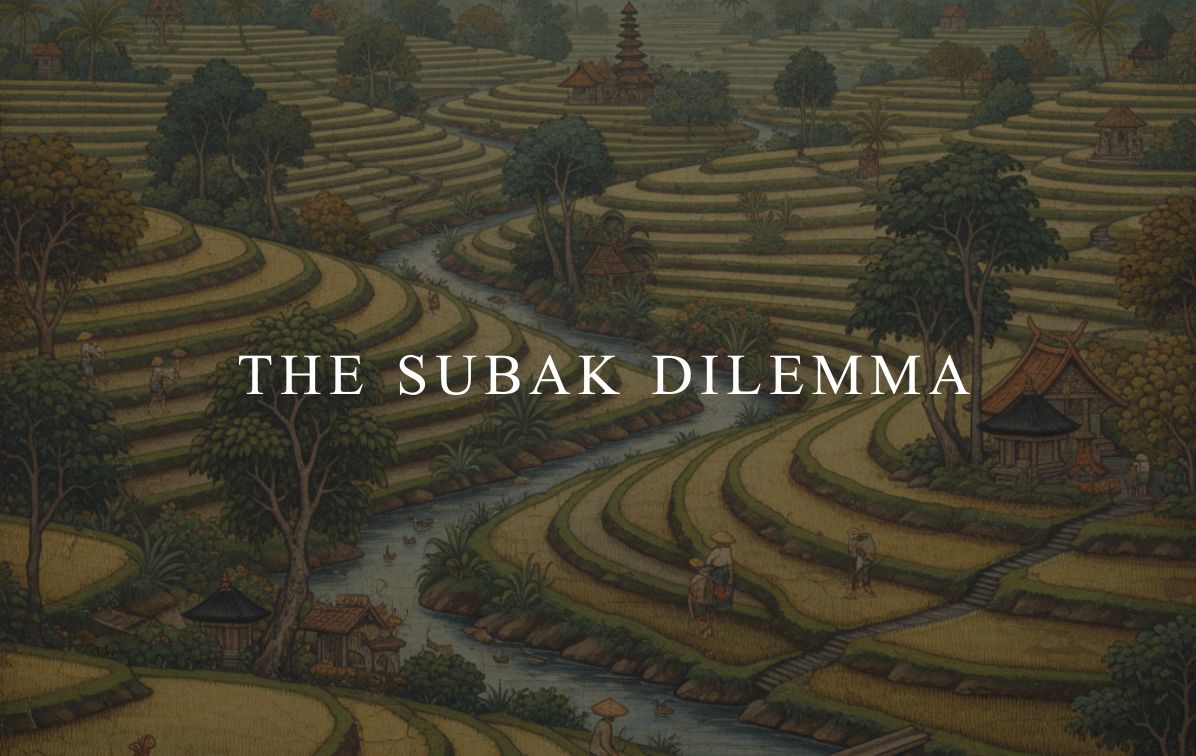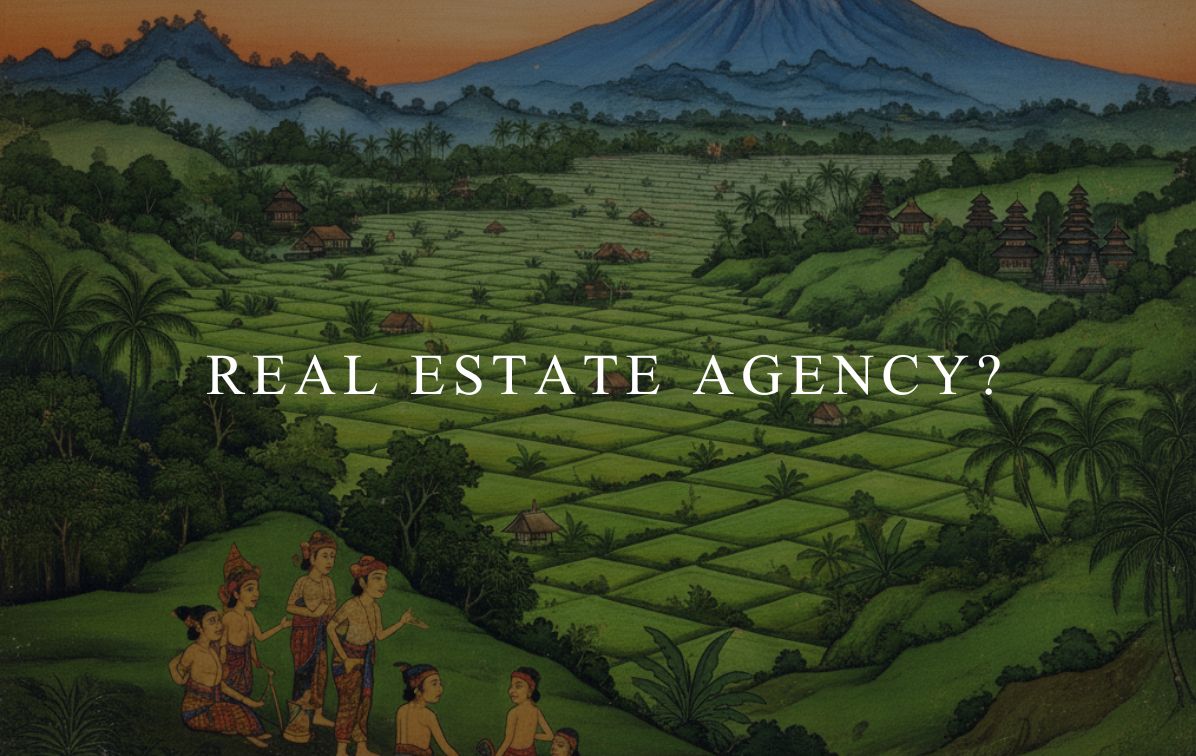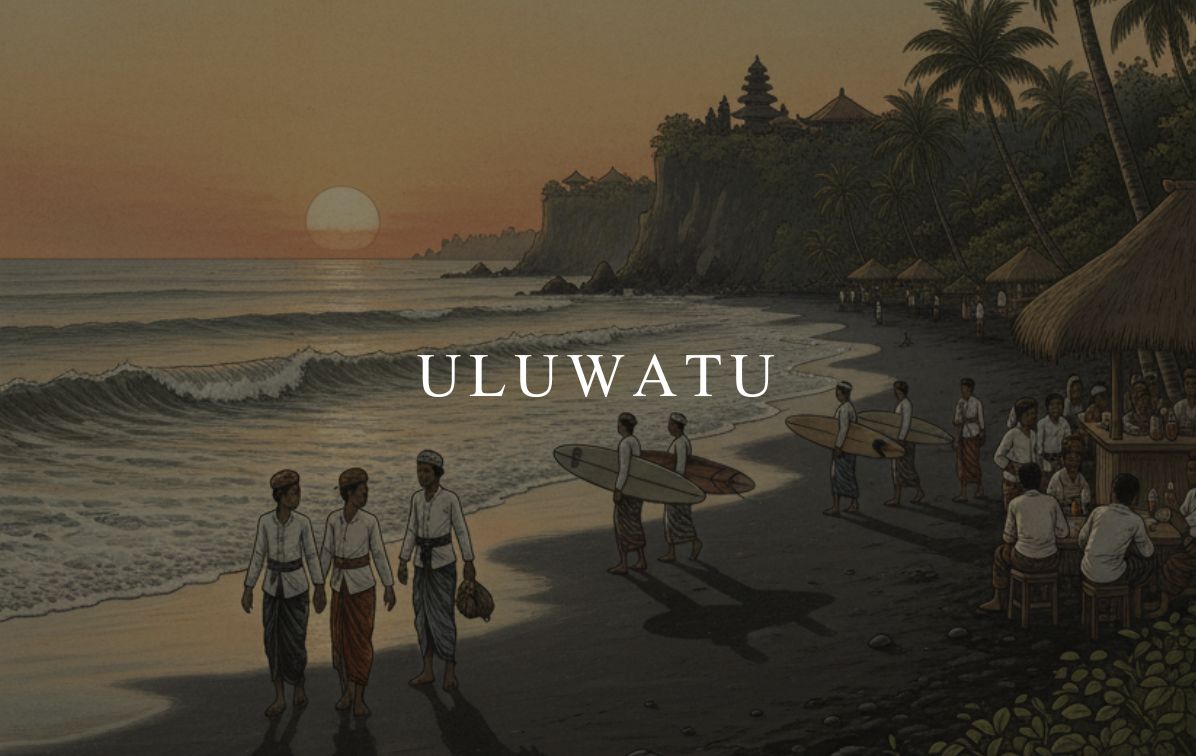The ubud vortex: lifestyle and real estate
Explore the real Ubud, from its serene rice paddies to its vibrant artistic soul. An insider's guide to the lifestyle that captivates the world.

Ubud is Bali's undeniable spiritual and cultural vortex, a place where the pursuit of wellness, art, and self discovery is woven into the very fabric of the jungle landscape. It’s a town built on a legacy of healing and creativity, attracting a global community that comes not for the party, but for the purpose, seeking a deeper connection to themselves and the island’s profound energy.
If Tabanan is the island's green heart, Ubud is its intricate, beating soul. Honestly, it’s a place that almost defies easy description because it holds so many different meanings for so many people.
For some, it’s still the place they read about in a book, a destination for personal transformation. For others, it’s a global hub for yoga, a university for healers and artists. And for many, it’s also a bustling, sometimes chaotic town center.
But the real Ubud, the one that keeps people captivated, exists in the quiet spaces in between. It’s in the mist rising from the Ayung River gorge at dawn, in the scent of incense from a family temple, in the focus of an artisan at work. Let's peel back the layers and look at what defines the modern Ubud experience.
The Ubud persona: Who answers the call?
The gravitational pull of Ubud is specific. It attracts a different tribe than the coastal towns, a community drawn inward rather than toward the outward energy of the ocean. It’s a complex, ever evolving ecosystem of people who are here with intention. You will find:
- The global wellness community: This is the bedrock of modern Ubud. World renowned yoga teachers, healers, holistic practitioners, and their devoted students from every corner of the planet.
- Artists and artisans: Both Balinese and international artists are here. Ubud has a long and storied history as a center for art, and you see that in the countless galleries, workshops, and the sheer creative energy of the place.
- Conscious entrepreneurs: This is a different breed of digital nomad. They are often building businesses in the wellness, sustainability, or personal development space. The work is deeply integrated with their lifestyle and values.
- The culture and knowledge seekers: People who are here to learn. They're taking courses in Balinese cooking, silver making, batik, or gamelan. They are deeply respectful of the culture and eager to engage with it.
The lifestyle here is mindful. That’s the best word for it. It's structured around a yoga class, a meditation session, a healthy meal at an organic cafe. There’s a quiet intellectualism and a deep curiosity that fuels conversations. It’s less about what you do for a living and more about what you're passionate about.
The heart of healing: The Ubud experience
While there's no beach, the richness of experience in Ubud is profound. It’s a feast for the senses and the soul.
- Yoga and healing central: This is ground zero. From legendary studios like The Yoga Barn to countless smaller shalas, this is arguably the best place in the world to deepen your practice. The community of healers, offering everything from sound baths to traditional Balinese therapies, is unparalleled.
- A culinary journey: Ubud is the capital of Bali’s health food scene. It pioneered the farm to table movement on the island and is a paradise for vegans, vegetarians, and anyone who loves fresh, organic, and incredibly creative food.
- Art and culture at every turn: You can immerse yourself in art by visiting the Agung Rai Museum of Art (ARMA) or the Neka Art Museum, watching a traditional dance performance at the Ubud Palace, or just wandering through villages where entire families are dedicated to woodcarving or painting.
- Nature's embrace: The landscape is an active participant. It’s about walking the Campuhan Ridge at sunrise, exploring the Tegalalang rice terraces, or simply finding a quiet spot overlooking a jungle ravine. The connection to nature is immediate and powerful.

Finding your center: A guide to Ubud's key neighborhoods
Ubud is a constellation of villages, each with its own distinct energy. Where you stay completely shapes your experience.
Central Ubud: The bustling heart
This is the commercial and tourist core, centered around Ubud Market and the main palace. It’s vibrant, energetic, and often packed with traffic. It’s where you’ll find the highest concentration of shops, major restaurants, and museums. It's convenient and exciting, but it’s not where you go for peace and quiet. Living here means being in the thick of it all.
Penestanan: The artistic village on the hill
Just a short walk west of the center, Penestanan feels like another world. It’s known as the artists' village and is a charming maze of small paths inaccessible to cars. It’s packed with artists' studios, yoga shalas, and healthy cafes. It has a strong, quiet community feel and is perfect for those who want proximity to the center without the chaos.
Sayan: The five star ridge
This is Ubud’s millionaire’s row. The Sayan ridge, which follows the dramatic gorge of the Ayung River, is home to some of the world’s most spectacular and luxurious hotels, like the Four Seasons, and incredible private villas. It’s for those seeking ultimate luxury, privacy, and those jungle views. The vibe is exclusive, serene, and utterly breathtaking.
Nyuh kuning: The quiet, family friendly village
Located just south of the Monkey Forest, Nyuh Kuning is a beautiful, clean, and quiet village with a remarkably strong community feel. It’s incredibly family friendly, with wide, walkable roads and a number of charming cafes and guesthouses. It has all the charm of Ubud with none of the frantic energy, making it a favorite for long term residents and families.
The property pulse: A market built on wellness
The real estate market in Ubud is driven by a unique set of factors. It’s not about beach access or party proximity. Here, the value is in tranquility, views, and a connection to nature. Let’s look at the key elements:
- The wellness factor: Properties that can function as retreat centers, yoga shalas, or have a serene, healing atmosphere are in high demand. Investors are buying into the wellness brand of Ubud itself.
- Jungle and rice field views: The premium properties are those that overlook a lush jungle ravine or have sweeping rice paddy views. The landscape is the luxury.
- A focus on long term stays: The market is geared towards people who are staying for weeks, months, or even years. This creates a stable demand for high quality, comfortable long term rental villas.
Investing in Ubud is an investment in a globally recognized lifestyle. It's less speculative than some coastal areas and is built on the enduring appeal of Bali's cultural and spiritual heart.
Conclusion
Ubud is a paradox. It is a quiet, spiritual sanctuary and a bustling international town all at once. It’s a place that can feel intensely personal, a backdrop for your own journey of discovery, while simultaneously hosting a global conversation about wellness and conscious living. To understand Ubud is to understand that its true essence isn’t found on a busy street, but in the quiet moment of reflection overlooking a verdant valley, a moment that feels both ancient and perfectly, powerfully present.
%20(1).jpg)
.jpg)



